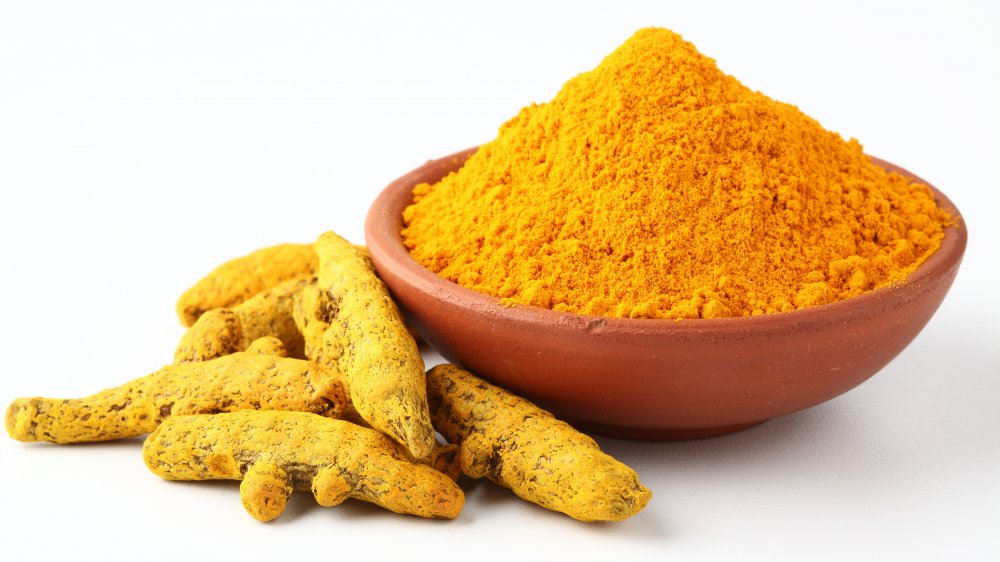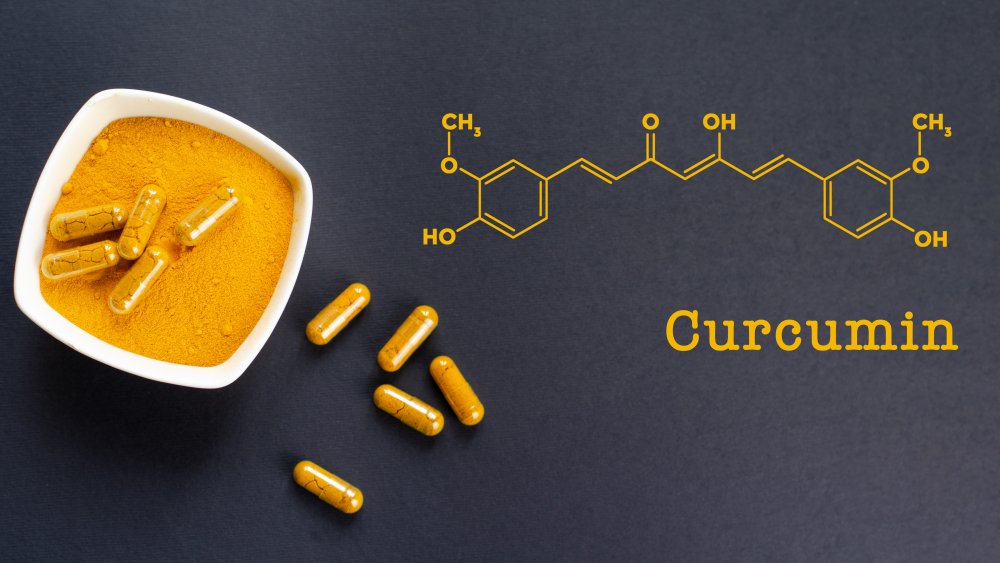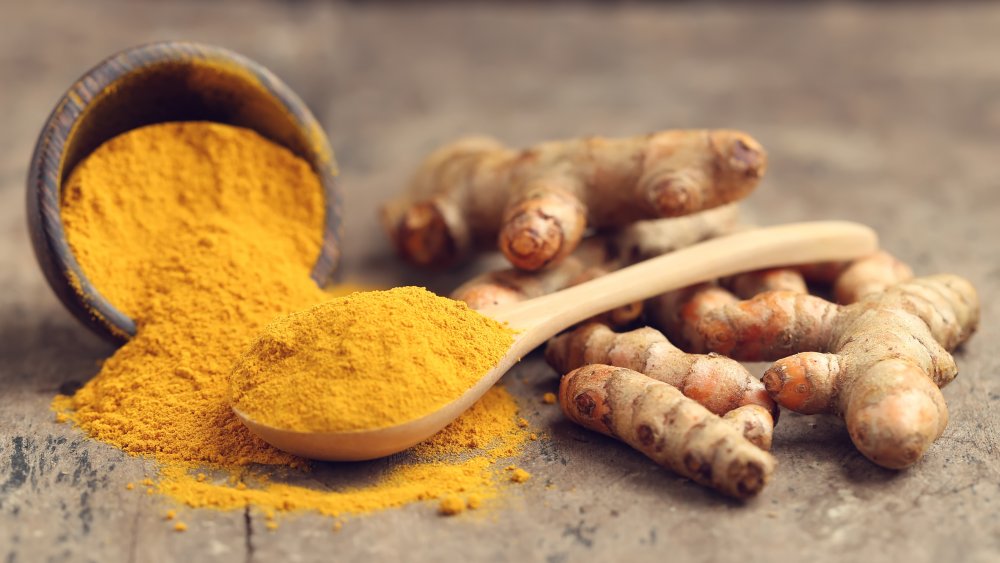Curcumin Vs Turmeric: What's The Difference?
Turmeric is a versatile spice, one that's used in different spice blends around the world (think curry powder) and which has a reputation for being one of the healthiest spices out there. But if you've ever gone to pick up the capsule version of turmeric to use medicinally, you may have found yourself with a bottle of curcumin instead, or with a bottle of turmeric that says it includes curcumin, making you wonder — what exactly is the difference between curcumin and turmeric?
For starters, the easiest thing to remember is that turmeric is an ingredient used in food, either in its fresh root form or in its powdered spice form, and that can also be used medicinally (via Encyclopedia), while curcumin is generally reserved for the medicine cabinet. That being said, the two are very closely related (via Healthline).
The difference between turmeric and curcumin
That's because curcumin is actually a chemical compound that's derived from turmeric. It's kind of confusing because the scientific name of turmeric is Curcuma longa, but what you should remember is that while all turmeric contains curcumin, curcumin is simply a component of turmeric.
Curcumin is a powerful antioxidant and is the most active and healthful element in turmeric (via Healthline). Curcumin is an anti-inflammatory, and in some lab tests, it has even been found to be effective in reducing the size of tumors, helping protect against high cholesterol and diabetes, and more (via WebMD).
However, turmeric only contains 2 to 8 percent curcumin by weight, so you'll often find capsules of curcumin, not turmeric, at the pharmacy. That's because in order to get any of the health benefits of turmeric from diet alone, you'd need to eat almost a full gram of turmeric a day. Instead, extracts of turmeric are made that have a concentrated curcumin content, and that's what you'll often see in different supplements.
Curcumin supplements are often paired with piperine, a substance derived from black pepper, which helps the bloodstream absorb it, and it's also beneficial to take it with some sort of fatty food.
If you don't want to buy curcumin capsules but want to absorb as much of it as possible from your diet alone, pair meals seasoned with turmeric with black pepper and some sort of healthy fat for maximum absorption.
Is turmeric actually healthy?
Turmeric does seem to have a number of positive effects on health, thanks to the substance curcumin. Turmeric has been shown to improve conditions like Alzheimer's, arthritis, Crohn's disease, diabetes, cancer, cardiovascular disease, and more (via NBC).
It's believed that the reason why turmeric can help improve so many conditions is because it's an anti-inflammatory and antioxidant.
Before you start ingesting large amounts of turmeric or taking a curcumin supplement, however, you need to check with your doctor. That's especially true in the case of curcumin supplements. Most of those contain piperine, which helps the body absorb the curcumin, but it can also make the body slow down its elimination of other prescription drugs, including those taken to treat angina, bipolar disorder, high blood pressure, and seizures. If those build up in the body, they can become toxic.
What is turmeric used in?
If you're interested in adding turmeric to your diet, you're lucky – it's a very versatile spice.
There are a number of savory ways to use turmeric in your cooking. Just make sure to combine it with black pepper, which will make the curcumin found in turmeric more bioavailable (via The Kitchn).
Turmeric can be added to rices, stews, curries, and soups. You can add it to spice rubs used on roasted and grilled meats, or add it to a pan of roasted veggies to give them a subtle flavor and a warm golden flavor. Look to Indian and Caribbean recipes if you need more inspiration — turmeric is often used in those cuisines (via Today).
If you want to get the most nutrients out of turmeric, you're best off opting for fresh turmeric root, which you can often find at Indian and Caribbean grocery stores, or specialty markets like Whole Foods. Fresh turmeric root is more easily absorbed by the body, which helps you get the most out of its health benefits (via Spiceography).
However, dried turmeric is a good option for those who can't get their hands on fresh turmeric root, or who want something with a longer shelf life. For best results, get dried turmeric from a specialty spice shop, which tends to offer fresher products than what you get at the grocery store (via Taste of Home).



